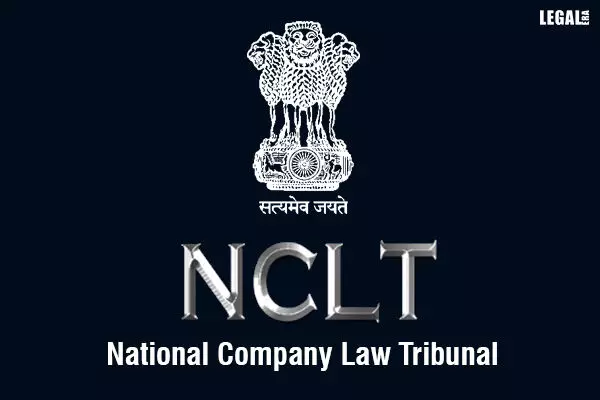- Home
- News
- Articles+
- Aerospace
- Artificial Intelligence
- Agriculture
- Alternate Dispute Resolution
- Arbitration & Mediation
- Banking and Finance
- Bankruptcy
- Book Review
- Bribery & Corruption
- Commercial Litigation
- Competition Law
- Conference Reports
- Consumer Products
- Contract
- Corporate Governance
- Corporate Law
- Covid-19
- Cryptocurrency
- Cybersecurity
- Data Protection
- Defence
- Digital Economy
- E-commerce
- Employment Law
- Energy and Natural Resources
- Entertainment and Sports Law
- Environmental Law
- Environmental, Social, and Governance
- Foreign Direct Investment
- Food and Beverage
- Gaming
- Health Care
- IBC Diaries
- In Focus
- Inclusion & Diversity
- Insurance Law
- Intellectual Property
- International Law
- IP & Tech Era
- Know the Law
- Labour Laws
- Law & Policy and Regulation
- Litigation
- Litigation Funding
- Manufacturing
- Mergers & Acquisitions
- NFTs
- Privacy
- Private Equity
- Project Finance
- Real Estate
- Risk and Compliance
- Student Corner
- Take On Board
- Tax
- Technology Media and Telecom
- Tributes
- Viewpoint
- Zoom In
- Law Firms
- In-House
- Rankings
- E-Magazine
- Legal Era TV
- Events
- Middle East
- Africa
- News
- Articles
- Aerospace
- Artificial Intelligence
- Agriculture
- Alternate Dispute Resolution
- Arbitration & Mediation
- Banking and Finance
- Bankruptcy
- Book Review
- Bribery & Corruption
- Commercial Litigation
- Competition Law
- Conference Reports
- Consumer Products
- Contract
- Corporate Governance
- Corporate Law
- Covid-19
- Cryptocurrency
- Cybersecurity
- Data Protection
- Defence
- Digital Economy
- E-commerce
- Employment Law
- Energy and Natural Resources
- Entertainment and Sports Law
- Environmental Law
- Environmental, Social, and Governance
- Foreign Direct Investment
- Food and Beverage
- Gaming
- Health Care
- IBC Diaries
- In Focus
- Inclusion & Diversity
- Insurance Law
- Intellectual Property
- International Law
- IP & Tech Era
- Know the Law
- Labour Laws
- Law & Policy and Regulation
- Litigation
- Litigation Funding
- Manufacturing
- Mergers & Acquisitions
- NFTs
- Privacy
- Private Equity
- Project Finance
- Real Estate
- Risk and Compliance
- Student Corner
- Take On Board
- Tax
- Technology Media and Telecom
- Tributes
- Viewpoint
- Zoom In
- Law Firms
- In-House
- Rankings
- E-Magazine
- Legal Era TV
- Events
- Middle East
- Africa
NCLT Rules No Provision For Returning Resolution Plans To CoC For Reconsideration

NCLT Rules No Provision For Returning Resolution Plans To CoC For Reconsideration
The National Company Law Tribunal (NCLT) New Delhi bench, comprising Mahendra Khandelwal (Judicial Member) and Rahul Bhatnagar (Technical Member), has ruled that there is no provision under the Insolvency and Bankruptcy Code (IBC) allowing the Adjudicating Authority (AA) to send a resolution plan back to the Committee of Creditors (CoC) for reconsideration at the CoC's request.
The bench further clarified that once a resolution plan is submitted to the AA, its jurisdiction is strictly limited to either approving or rejecting the plan.
The NCLT had previously admitted a petition filed by Punjab National Bank (Financial Creditor) under Section 7 of the IBC, initiating the Corporate Insolvency Resolution Process (CIRP) against Saraya Industries Limited (Corporate Debtor). During the 19th CoC meeting on July 11, 2023, two resolution plans were presented. The plan by Swarajkranti Infratech Private Limited received overwhelming approval with 99.96% voting share, while JFC Finance (India) Limited’s plan was rejected.
Subsequently, the Applicant filed an application under Sections 30(6) and 31 of the IBC, seeking approval for the resolution plan. Punjab National Bank requested a reconsideration and renegotiation of the plan, arguing that the resolution value of Rs. 76 Crores was significantly below the liquidation value of Rs. 100 Crores.
Despite the CoC’s majority support for withdrawing the resolution plan approval application, the Applicant approached the NCLT for adjudication.
The NCLT noted that the Applicant recognized the absence of any IBC provision that allows the AA to return a resolution plan to the CoC for reconsideration. The tribunal emphasized that the AA’s role is restricted to either approving or rejecting the plan based on Section 31 of the IBC.
Citing precedents, including the Supreme Court's decisions in Greater Noida Industrial Development Authority v. Prabhjit Singh Soni and Ebix Singapore Pvt. Ltd. v. Committee of Creditors of Educomp Solutions Ltd., the NCLT reiterated that the AA cannot remand a resolution plan to the CoC. The Supreme Court had previously ruled against allowing post-submission modifications of resolution plans to avoid delays and potential depletion of liquidation value.
Further, the NCLT referred to the NCLAT ruling in Kalinga Allied Industries India Private Limited v. CoC and Ors., affirming that once a resolution plan is approved by the CoC and is free of material defects, it becomes binding.
In light of these findings, the NCLT dismissed the application, reaffirming the procedural limits on the AA's role in the resolution process.



